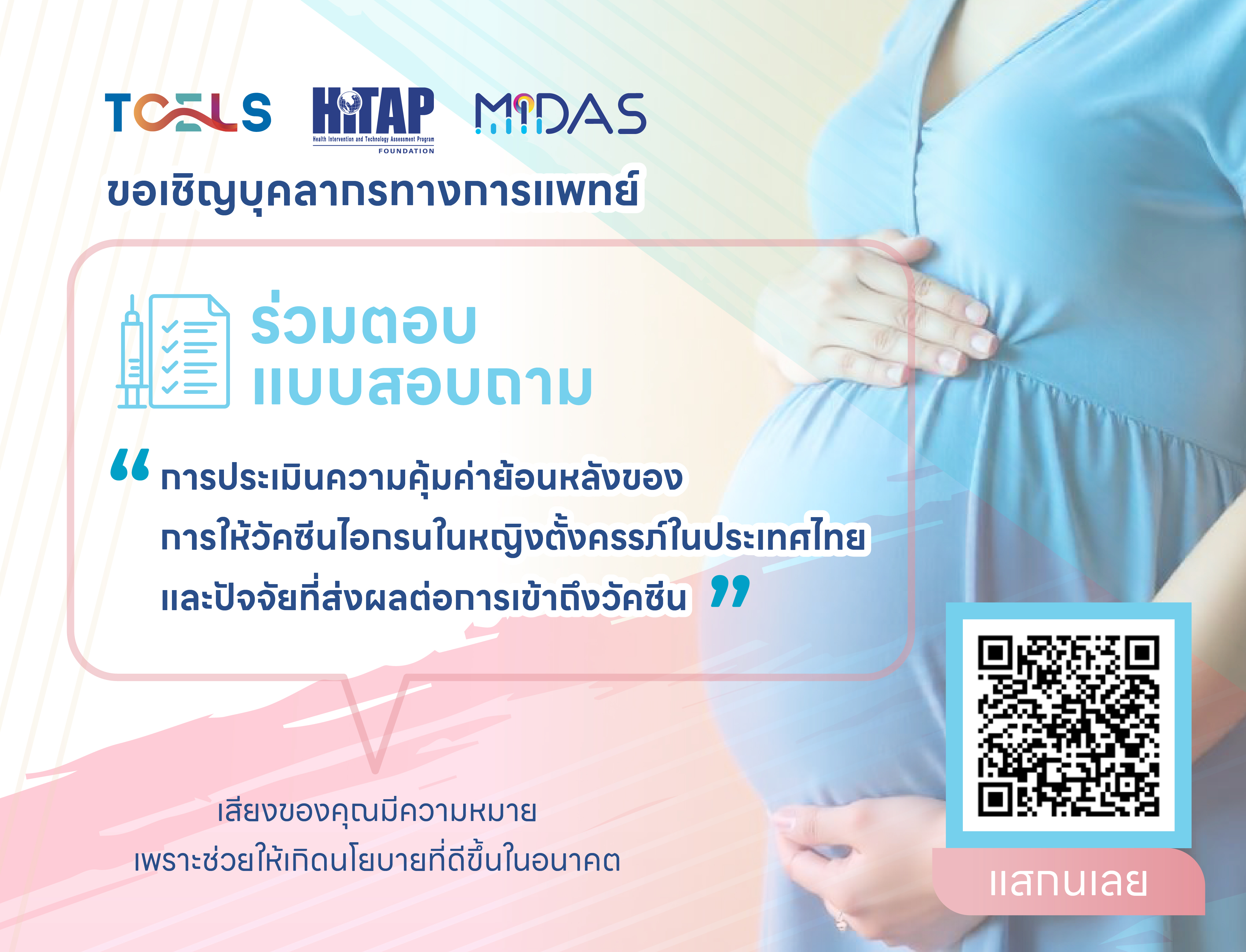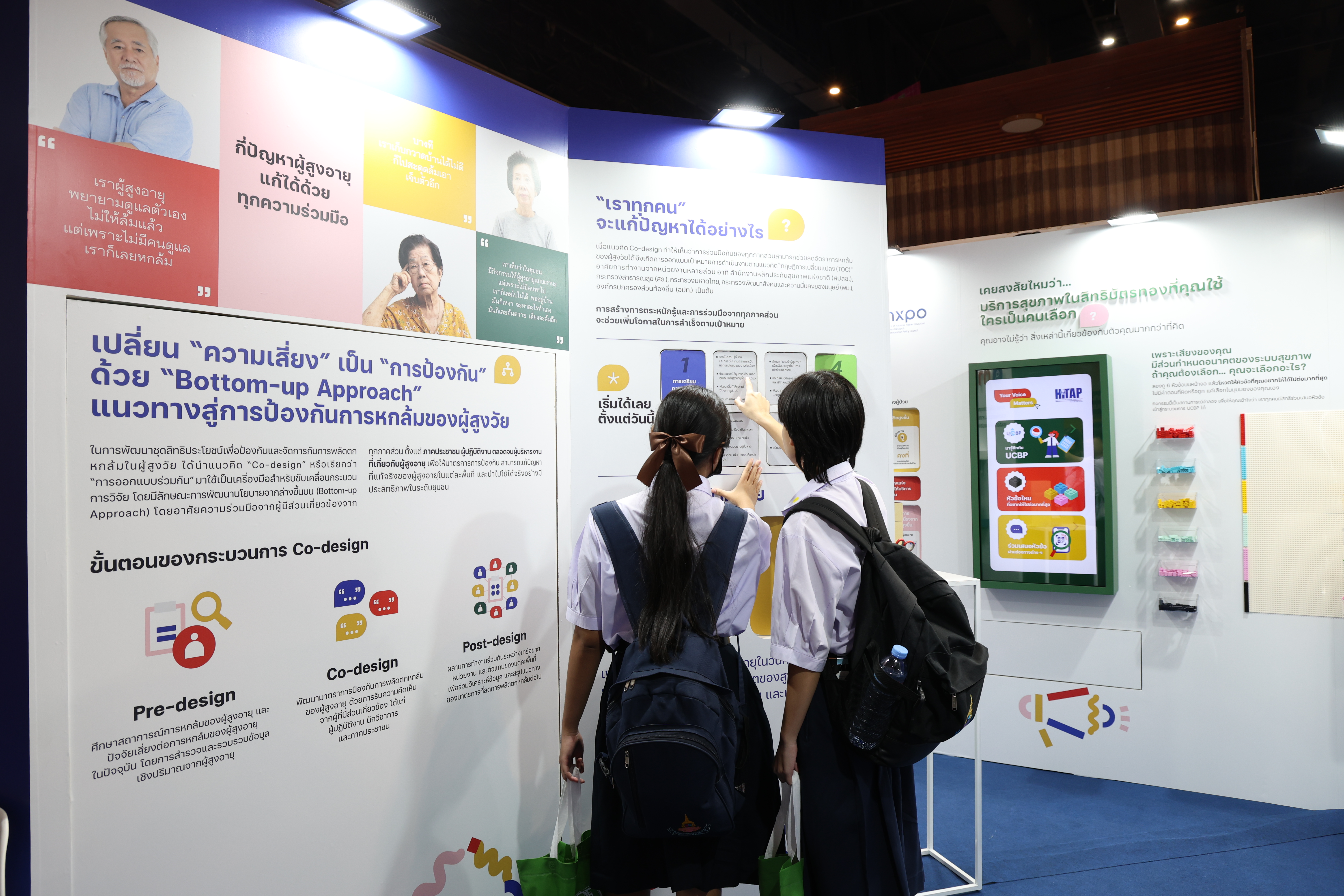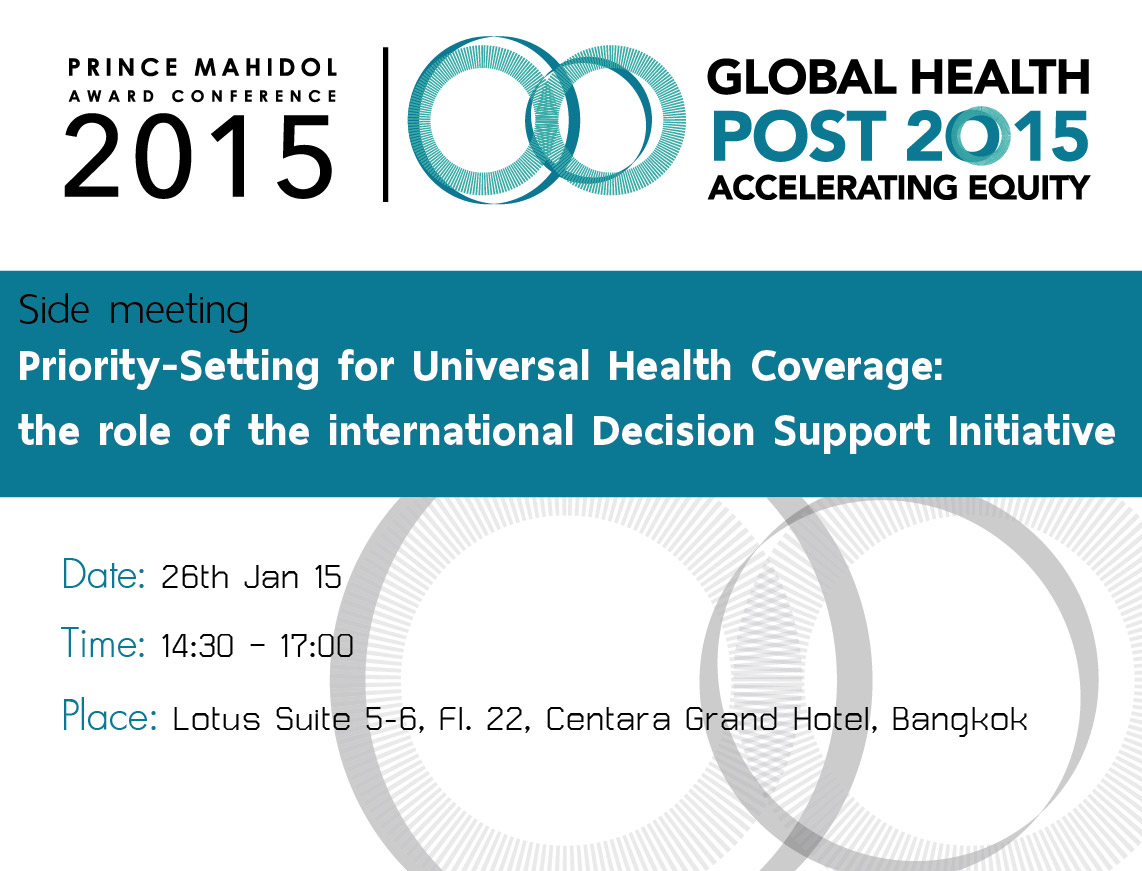ขอเชิญบุคลากรทางการแพทย์ร่วมตอบแบบสอบถาม “การประเมินความคุ้มค่าย้อนหลังของการให้วัคซีนไอกรนในหญิงตั้งครรภ์ในประเทศไทย และปัจจัยที่ส่งผลต่อการเข้าถึงวัคซีน”




Universal health coverage (UHC) is now firmly on the global health agenda. The central purpose of UHC as described by the UN resolution is to provide “access to key promotive, preventive, curative and rehabilitative health interventions for all at an affordable cost.”
A critical first step to delivering on these aspirations is deciding which services and policies to make available under UHC. Data, methods, and evidence on the costs, effectiveness, and equity of health interventions and technologies are increasingly available, but many low- and middle-income countries lack the fair processes and institutions needed to make the connection between evidence and decisions on public spending and spell out the opportunity costs of decisions, while managing interest groups and ethical conundrums that of new technologies and scarce budgets.
In the context of the UHC movement, a number of institutions, including policy makers from Thailand and the UK, think-tanks and universities, launched a new initiative in January 2014, aiming to strengthen priority-setting institutions as a means of improving the quality and efficiency of health care. iDSI aims to provide direct and indirect support to countries committed to building better priority-setting processes for UHC. This is about empowering decision makers, researchers as well as other relevant stakeholders in low and middle income countries by helping them to act on their own policy priorities. Our unique differentiating factors are peer-to-peer learning and collaborative problem-solving through hands-on support, drawing on experience from around the world, to adapt evidence and policies to countries’ local context.
We will also explore the potential role of donors and funding channels such as the Global Fund, in promoting local institutions and devolving decision-making responsibility for resource allocation decisions to country policy makers. This is particularly important in low-income settings where the negotiating power of national governments is limited and the priorities of donors can take precedence over local priorities, which remain, often, unarticulated.
During this panel session we will discuss the progress of the initiative so far, launch our early products and the challenges of country-led reforms. We also aim to raise awareness of our work amongst the global health community and to identify partners from around the world, interested in working with us to promote our basic values of transparent, inclusive, independent and scientific mechanisms for making healthcare policies based on evidence and values.
Venue:
Lotus Suite 5-6, 22Fl., Centara Grand & Bangkok Convention Center, Bangkok
Date/time/Duration:
January 26, 2015/ 09:00 – 14:30/ 5.5 hours
Contact person:
Chalarntorn Yothasmutra
Email: [email protected]
Nattha Tritasavit
Email: [email protected]